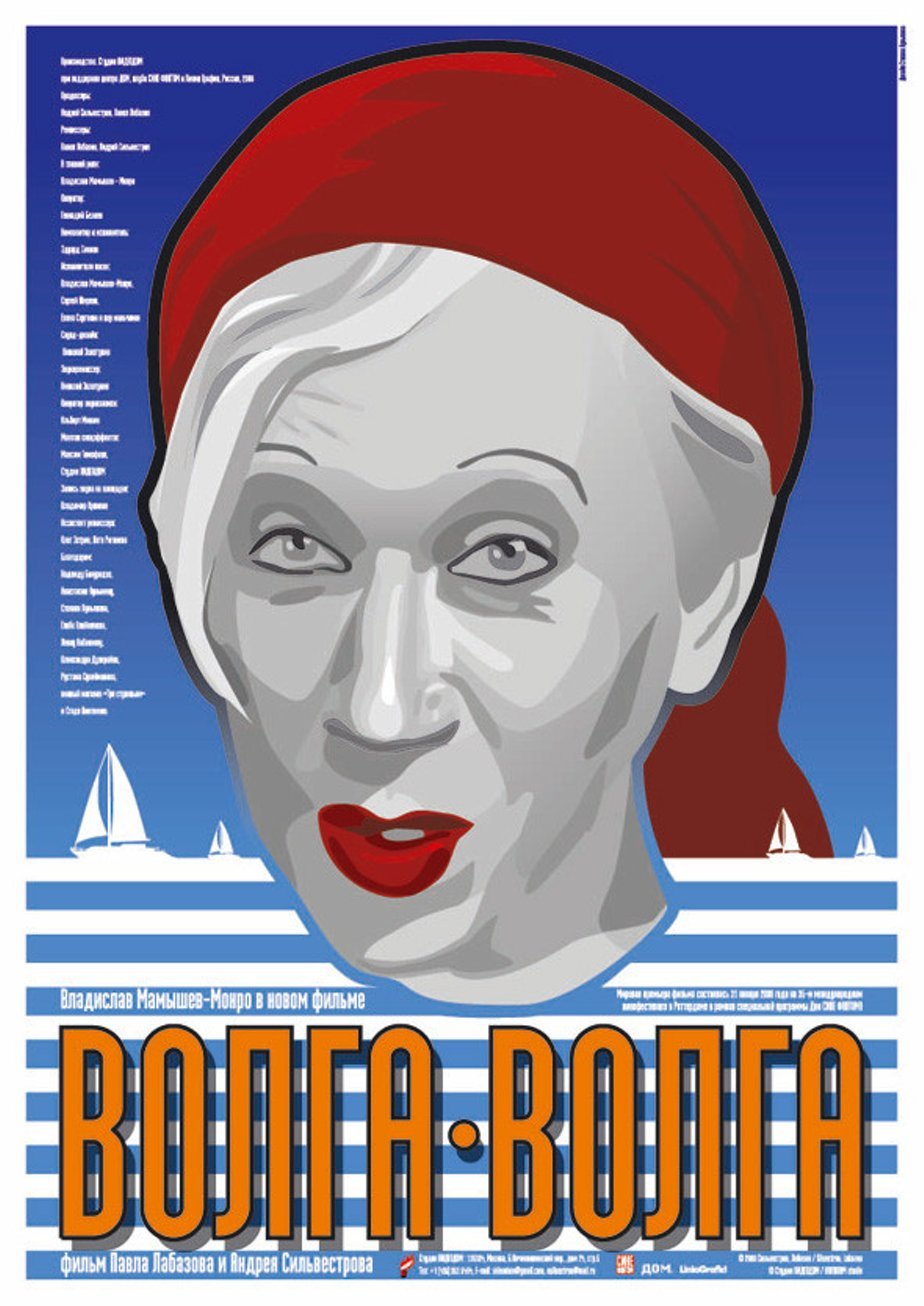Pushkin House presents a screening of two films, in conjunction with the current exhibition Desire International.
Signs of Western queer aesthetics began to penetrate into Russia after the collapse of the USSR, where homosexual relations were illegal. One of the most prominent post-Soviet queer artists in the ‘90s and ‘00s was Vladislav Mamyshev-Monroe, famous for dressing up as numerous celebrities and for drag queen shows. The film Volga-Volga is a travesty remake of the 1938 Soviet musical comedy of the same name about amateur performances, in which the head of the actress Orlova is replaced by Mamyshev-Monroe’s face. This humorous gesture banalises the sublime aesthetics of the propaganda movie, considered a favourite of Joseph Stalin, and turns it into a tragicomic farce.
However, in his article ‘The Theory of Pleshka’, Yevgeniy Fiks writes about the other side of this liberalisation. According to him, ‘the post-Soviet queer artists legitimized themselves only through conformity to the ideas of the Russian art scene about Western gay culture.’ This process can lead to the obliteration of the more unique and implicit manifestations of queer energy, which always existed in the Soviet Union in forms dissolved in theatre, cinema, painting, etc. In order to make them visible and form an alternative canon, a certain amount of historical work is required. A good example is the essay film by Mark Rappoport Sergei/Sir Gay. This is the nickname with which the Soviet avant-garde film director Sergei Eisenstein signed his teenage drawings. Rappaport brings out the hallmarks of sexual preferences in Eisenstein’s oeuvre, showcasing the unique queer culture which was shaped behind the Iron Curtain.
Volga-Volga
Pavel Labazov, Andrey Silvestrov
(with Vladislav Mamyshev-Monroe)
70 min | 2006
A new version of Grigory Alexandrov’s hugely popular 1938 Soviet musical comedy of the same title. Postman Dunya, played in the original by Lyubov Orlova, is replaced by the famous queer performance artist Vladislav Mamyshev-Monroe. His head talks, sings and dances Orlova’s part and destroys the radiant world of the original film. Structures of Stalinist construction, motor ships and statues of the leaders turn into plywood decorations, while the actors seem to turn into characters from Bosch’s paintings.
Sergei/Sir Gay
Mark Rappaport
36 min | 2017
Sergei Eisenstein, one of the greatest and most influential filmmakers of all time, was also a brilliant plastic artist. His thousands and thousands of drawings are superb – as are the hundreds of homoerotic drawings he made for his own amusement, never meant for publication.
In Sergei/Sir Gay, the homoerotic references in Eisenstein’s films are examined and explored in ways they had never been before.
The event has been curated by Dmitry Frolov.



